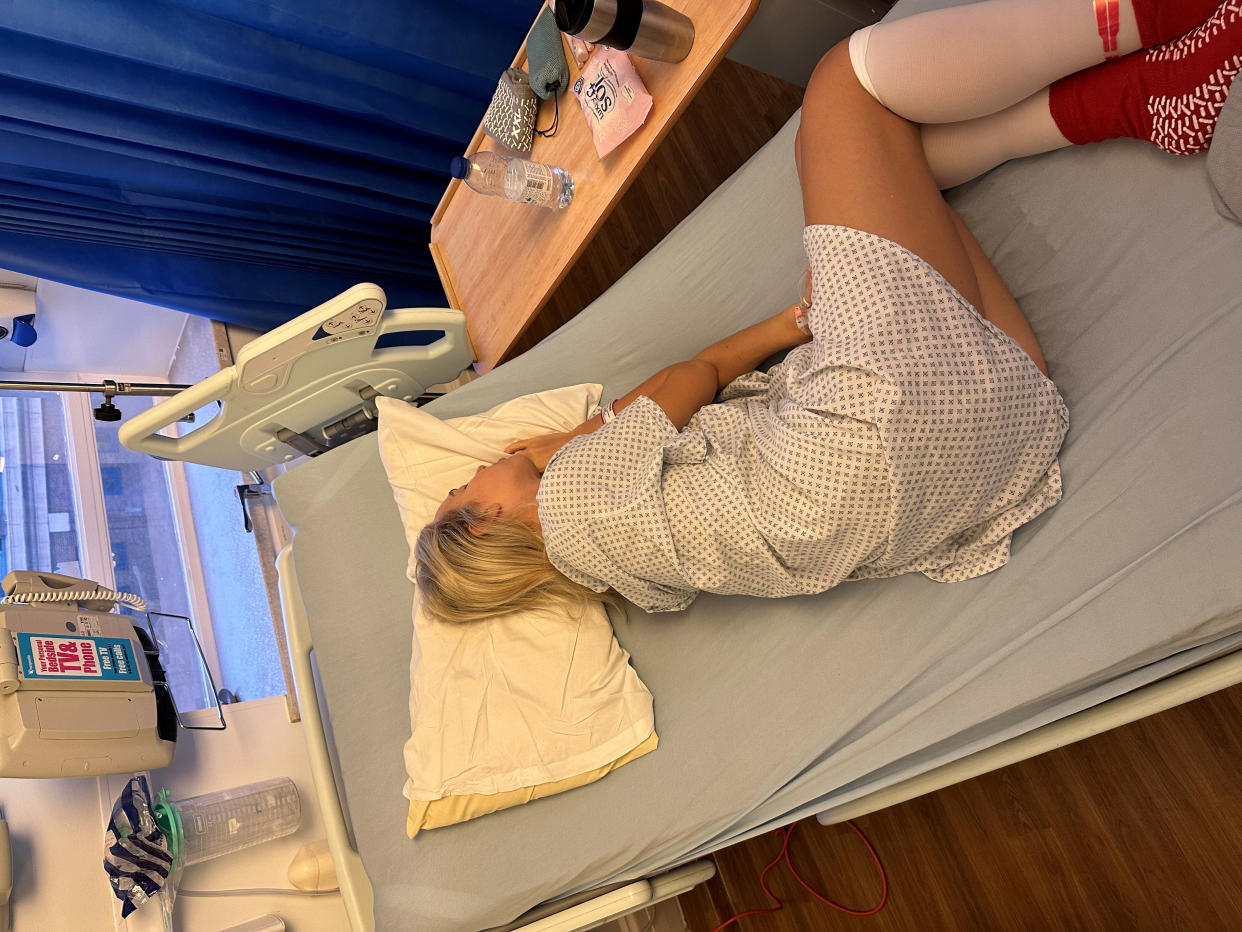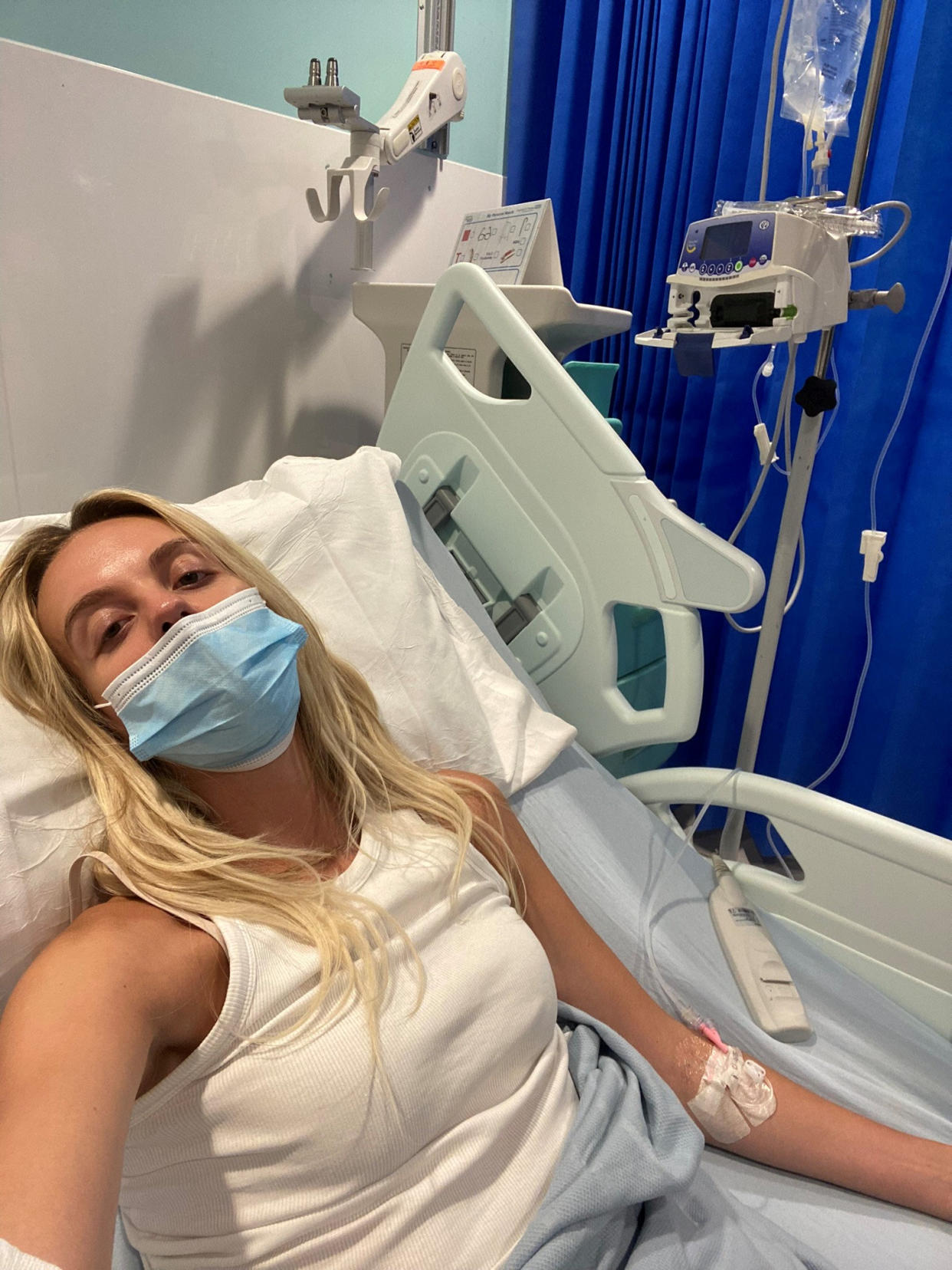Woman who woke up unable to pee for over a year diagnosed with rare condition

A woman who was unable to pee for more than a year has revealed how being diagnosed with a rare condition has "completely changed" her life.
Elle Adams, 30, a content creator from Bow, east London, woke up one morning in October 2020 and found herself unable to urinate.
No matter how much fluid she drank, she couldn't pass urine even though she felt like she needed to.
Understandably, Adams felt concerned and went to A&E at St Thomas' Hospital, London. After explaining her unusual symptoms, doctors discovered Adams had one litre of urine in her bladder.
For context, women's bladders are usually able to hold up to 500ml and men's are usually able to hold 700ml.
Doctors fitted her with an emergency catheter – a tube that's passed into the bladder to drain urine.
After visiting the urology centre a week later, Adams was taught how to self-catheter and was sent home, but it was only the beginning of her bladder issues.
Read more: Meet the real life Sleeping Beauty, whose rare syndrome means she sleeps for weeks at a time

Following a period of 14 months where she was unable to wee normally, and many tests, Adams was finally diagnosed with Fowler's Syndrome – an inability to pass water normally – in December 2021.
Bladder Health UK describes Fowler's Syndrome as a condition that causes difficulty peeing and urinary retention.
It mainly presents in young women in their 20s and 30s. The causes are unknown and treatments for the condition are limited.
Watch: UK woman with neurological disorder forced to wet herself in River Island
The diagnosis means Adams will have to urinate using a catheter for the rest of her life.
"I was extremely healthy. I had no other problems," she explains of her health before.
"I woke up one day and I wasn't able to wee. I was very concerned that I wasn't able to complete a simple task like go to the toilet."
Adams describes feeling at "breaking point" before her diagnosis, explaining that being unable to go to the toilet had "completely changed" her life.
Read more: Instagram campaigner wears purple glittery false eye to inspire others with sight loss

In order to discover what was causing her bladder issues, she underwent a urodynamics test – a procedure that looks at how well parts of the lower urinary tract work to store and release urine – at Guy's Hospital, London.
"I was told I was likely to be suffering from Fowler's," she explains. "I was talked through the treatment options which were minimal – we did try medication but it just made no difference.
"The only option for me was to undergo sacral nerve stimulation which acts as a pacemaker for the bladder."
Sacral nerve stimulation delivers gentle electrical impulses through a probe – a thin wire – that is placed near the sacral nerve (in the pelvis).
Similar to a pacemaker but instead of stimulating a heartbeat it stimulates bowel muscles, so they work normally.

In January 2023 Adams underwent an operation to have the mechanism fitted.
"It is not life-changing, but it can help," she explains.
"I catheterise a lot less around 50% less."
After two years of what she describes as "hell" Adams says the procedure has made her life easier.
"I couldn't have imagined continuing the way I was living before," she continues. "It was so draining, and it took up my life.
"It was becoming hard to imagine that would have been my life forever," she adds.
"Now I can pee on my own, I have cut down my self-catheterisation a lot.
"It is still difficult, but it is much better than it was."
Additional reporting SWNS.


